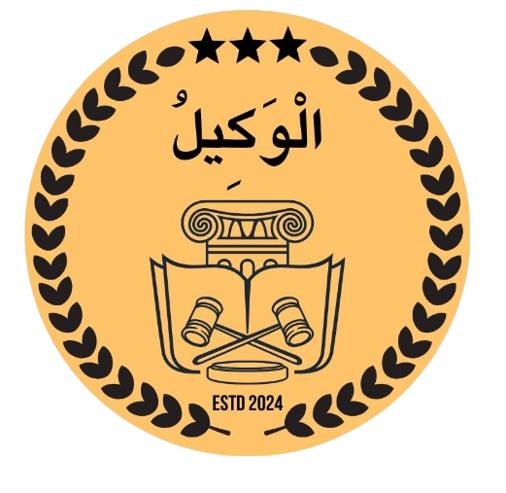Legal education is the backbone of any judicial system, and in Pakistan, it plays a crucial role in shaping future lawyers, judges, and legal scholars. Understanding the various types of law degrees available is vital for anyone considering a legal career. From the foundational LLB to specialized LLM programs, each degree opens the door to unique career opportunities within the legal profession.
Choosing the right path depends on several factors, including your long-term goals, interest in specific legal areas, and whether you plan to practice law, join the judiciary, or work in academia. As the legal field becomes more complex, there’s also an increasing need for specialized degrees like Criminology and International Law that offer deeper insights into niche areas.
This guide will provide you with a clear understanding of the different types of law degrees in Pakistan, their entry requirements, and what you can do with each degree. Whether you’re just beginning your academic journey or looking to advance your legal career, knowing the available options will help you make informed decisions.
2. Understanding the Legal System in Pakistan
Legal education in Pakistan is deeply rooted in the country’s rich judicial history, which has evolved significantly over time. The legal system here is based on a blend of British common law, Islamic principles, and local statutes, making it unique and multifaceted. For aspiring legal professionals, understanding this system is crucial, as it forms the foundation of their education and career. The legal profession in Pakistan is diverse, offering opportunities in a wide range of areas such as criminal law, civil law, corporate law, human rights, and international law.
The Structure of the Legal System
The legal system in Pakistan operates through a well-established hierarchy, starting with the lower courts and ending with the Supreme Court, the highest judicial body. Below the Supreme Court are the High Courts, which preside over the provinces. Then there are district courts, where most cases begin. Each level of this system requires professionals who are well-versed in law and have undergone rigorous legal education.
Law students in Pakistan typically start with an LLB (Bachelor of Laws), which provides them with a strong foundation in legal principles, critical thinking, and analytical skills. However, the journey doesn’t stop there. Many graduates choose to specialize in certain areas of law by pursuing higher degrees like an LLM (Master of Laws) or obtaining a Bar-at-Law qualification to practice as advocates in courts.
Why Understanding the Legal System is Important
Knowing the legal framework is important for both students and practicing lawyers. For students, it helps in choosing the right law degree and career path. Whether you aspire to become a corporate lawyer, a human rights advocate, or a judge, understanding the legal system will guide your academic choices. This is why it is crucial to select the appropriate law degree, as each type of degree caters to specific roles within the legal ecosystem.
For instance, if your goal is to become a practicing lawyer, you would start with an LLB, followed by a Bar-at-Law degree to qualify for courtroom advocacy. Alternatively, those interested in specialized legal areas, such as international law or human rights, may pursue an LLM with a focus on that field.
The Role of Legal Education in the Pakistani Context
Legal education in Pakistan is designed to not only equip students with theoretical knowledge but also to provide practical skills. Universities and law schools across the country offer courses that cover constitutional law, criminal law, corporate law, and other key areas of the legal system. The curriculum is typically structured to give students a thorough understanding of both national and international legal frameworks.
In recent years, there has been a growing trend towards the inclusion of more specialized fields within legal education, such as environmental law, media law, and intellectual property law. This is in response to the changing dynamics of society and the increasing demand for lawyers who can navigate these complex and emerging fields.
How Law Degrees Fit into the Legal System
Different types of law degrees have specific roles within Pakistan’s legal system. Here’s a breakdown of how each fits in:
- LLB (Bachelor of Laws): The LLB is the foundational degree for those wishing to practice law in Pakistan. It covers all the basic areas of law, including criminal, civil, and constitutional law. After completing an LLB, students must pass the Law Graduate Aptitude Test (LGAT) to enroll as advocates.
- LLM (Master of Laws): An LLM is a postgraduate degree that allows students to specialize in a particular area of law. It’s an advanced degree often pursued by those looking to enter academia, work in international organizations, or focus on niche legal areas like human rights or corporate law.
- Bar-at-Law: A Bar-at-Law qualification is essential for those who want to practice as courtroom lawyers in Pakistan or the UK. This degree is granted by the Inns of Court in London and is highly prestigious. Many Pakistani lawyers pursue this qualification after their LLB to gain the right to practice as barristers.
- Specialized Degrees: As Pakistan’s legal system becomes more complex, specialized law degrees have become increasingly popular. These include fields such as criminology, international law, and environmental law. These degrees are particularly useful for roles in international organizations, government agencies, and NGOs.
Key Components of Legal Education in Pakistan
- Theoretical Knowledge: Students learn the foundational principles of law, focusing on how the legal system works and the role of law in society. This includes studying constitutional law, criminal law, civil law, and other core areas.
- Practical Skills: Alongside theory, practical skills are heavily emphasized. This involves moot courts, internships, and working with practicing lawyers to gain real-world experience.
- Legal Research and Writing: Strong legal writing and research skills are essential for success in any area of law. Law students in Pakistan are trained to write legal memos, briefs, and conduct in-depth research on complex legal issues.
- Ethics and Professional Responsibility: The legal profession holds a high ethical standard, and students are taught the importance of maintaining professionalism, integrity, and responsibility throughout their careers.
3. Bachelor of Laws (LLB): The Foundation of Legal Education
The LLB (Bachelor of Laws) is the cornerstone of legal education in Pakistan, acting as the primary pathway to becoming a lawyer. The degree is structured to provide students with a comprehensive understanding of both theoretical and practical aspects of the law. There are two types of LLB programs in Pakistan: the 5-year program and the 3-year program. Here, we will discuss both, along with their entry requirements, curriculum, and their significance for legal careers in Pakistan.
The 5-Year LLB Program
The 5-year LLB program is now the most common and widely recommended path for students straight out of high school (FA/FSc/A-levels). It was introduced as a replacement for the traditional 3-year LLB after significant reforms in Pakistan’s legal education system by the Higher Education Commission (HEC). The main objective of this change was to align Pakistan’s legal education with global standards and provide a more in-depth learning experience for students.
- Eligibility Requirements:
- Students must have completed 12 years of education (FA/FSc/A-levels or equivalent).
- Passing the Law Admission Test (LAT), which is conducted by the HEC, is mandatory for enrollment.
- Curriculum Overview: The curriculum is designed to cover essential areas of law such as:
- Constitutional Law: Study of Pakistan’s Constitution and its application in governance.
- Criminal Law: Detailed understanding of the Penal Code, legal proceedings, and the justice system.
- Civil Law: Focuses on property rights, contracts, family law, and torts.
- International Law: Introduction to treaties, diplomacy, and global legal frameworks.
- Jurisprudence: The philosophy and theory of law.
- The program also emphasizes practical experience through moot courts, internships, and fieldwork.
- Duration and Examination: The program lasts five years and consists of ten semesters. Each semester culminates in written examinations, and students must complete several research projects during their study.
- Career Opportunities:
- Graduates can work as advocates by passing the Bar Council Exam and practicing law in courts.
- Many also work in corporate law as legal advisors for businesses, or in public service as part of the judiciary or administrative services.
The 3-Year LLB Program
Previously, the 3-year LLB was a popular option, especially for those who had already completed an undergraduate degree. Although the 3-year program has been largely phased out in favor of the 5-year program, some institutions still offer it, particularly for professionals who seek to transition into the legal field.
- Eligibility Requirements:
- A prior undergraduate degree (BA/BSc) is required for admission.
- As with the 5-year program, passing the Law Graduate Aptitude Test (LGAT) is mandatory.
- Curriculum Overview: The 3-year LLB covers much of the same ground as the 5-year program but in a condensed timeframe. Key areas include:
- Criminal Law
- Civil Law
- Commercial Law
- Islamic Jurisprudence
- The main difference is the pace at which the material is covered, with students expected to complete the program in six semesters (three years).
- Career Opportunities:
- Similar to the 5-year LLB, graduates are eligible to sit for the Bar Council Exam to become practicing advocates.
- The 3-year LLB also allows for opportunities in the corporate sector or public service.

Practical Skills Development
Both the 3-year and 5-year LLB programs focus heavily on developing practical legal skills. This is done through:
- Moot Courts: Students participate in simulated court proceedings to practice legal arguments, procedure, and case handling.
- Internships: Many law schools partner with law firms, NGOs, or corporate legal departments to provide hands-on experience.
- Legal Writing and Research: Law students are trained to draft legal documents, conduct thorough legal research, and write opinions.
The Importance of LLB for Legal Careers in Pakistan
The LLB degree is essential for anyone looking to become a practicing lawyer or judge in Pakistan. The legal profession is highly regulated, and the LLB ensures that students are well-equipped with the necessary knowledge and skills. Graduates can pursue various roles within the legal system, including:
- Advocate: Representing clients in courts of law.
- Legal Consultant: Providing legal advice in the corporate sector.
- Judiciary: After additional qualifications and experience, LLB graduates may apply for judicial positions.
Is LLB Enough?
For many, the LLB is just the beginning. Graduates often pursue further qualifications like LLM (Master of Laws) to specialize in areas such as Corporate Law, International Law, or Human Rights Law. Others may seek the Bar-at-Law qualification from the UK to become practicing barristers, which opens doors for higher-level legal practice both locally and internationally.
4. Master of Laws (LLM): Specializing in Law
The Master of Laws (LLM) is a postgraduate degree designed for students who wish to deepen their legal expertise, specialize in specific areas, or advance their career beyond the basic LLB qualification. While an LLB provides the foundation of legal education, the LLM opens doors to specialized legal fields and more advanced roles in the legal profession.
Eligibility and Entry Requirements
To pursue an LLM in Pakistan, students must first have completed an LLB or an equivalent law degree. Generally, a strong academic record is expected, and some universities may require a minimum grade threshold for admission. While the Law Graduate Aptitude Test (LGAT) is necessary for LLB admissions, the LLM program typically doesn’t require standardized entry exams, though individual universities may have their own criteria. Some institutions may conduct interviews or review the applicant’s professional experience.

Many professionals who have been practicing law also return to pursue an LLM, as it offers them the chance to specialize in areas that are crucial for their career advancement.
Specializations Offered in LLM
An LLM program allows law graduates to specialize in various fields of law. In Pakistan, several universities offer a range of specializations, making it possible to tailor your degree to your interests or career goals. Some popular areas of specialization include:
- Corporate Law: Focuses on the legal issues surrounding businesses, corporations, mergers, acquisitions, and corporate governance.
- International Law: Deals with international treaties, human rights law, diplomatic relations, and global legal practices.
- Human Rights Law: Examines the protection of individual freedoms and human rights, a popular field for lawyers working with NGOs and international bodies.
- Environmental Law: Concerned with laws and regulations regarding environmental protection, pollution control, and natural resources management.
- Criminal Law: This specialization dives deep into the criminal justice system, exploring advanced topics in crime, punishment, and rehabilitation.
- Taxation Law: Focuses on the intricacies of tax regulations, laws, and issues relating to businesses and individuals.
These specializations allow students to gain in-depth knowledge and become experts in their chosen fields, enhancing their career prospects in specific legal domains.
LLM Curriculum and Structure
The LLM program in Pakistan typically lasts one to two years, depending on whether the student is pursuing it full-time or part-time. The curriculum is generally a blend of advanced legal theory and practical applications in the chosen field of specialization. Key components of an LLM program include:
- Core Courses: These focus on general legal principles, advanced jurisprudence, and the intersection of law with other disciplines, depending on the specialization.
- Electives: Students can choose from a variety of elective courses related to their specialization. These may include modules on corporate finance law, international trade law, or human rights litigation, depending on the focus.
- Research Component: A significant part of the LLM program is the thesis or dissertation. Students are required to conduct extensive research on a specific topic within their specialization. This culminates in a written dissertation, which must be defended before an academic panel.
Benefits of Pursuing an LLM
An LLM not only enhances your legal knowledge but also sets you apart in a competitive job market. The advantages of obtaining an LLM include:
- Specialization: The degree allows you to become an expert in a specific area of law, giving you a competitive edge when applying for jobs or promotions.
- Career Advancement: An LLM is particularly beneficial for those seeking leadership roles in law firms, corporations, or international organizations. For instance, having an LLM in corporate law can lead to a position as a legal advisor for major companies or multinational corporations.
- Academic Opportunities: Those who are interested in teaching law at universities or pursuing further academic research may find that an LLM is a critical stepping stone to a career in academia.
- Global Opportunities: An LLM, especially with a focus on international law, opens doors to working with international organizations such as the United Nations, the World Bank, or international NGOs.
Career Opportunities After an LLM
The scope of career opportunities after completing an LLM is broad, depending on your area of specialization. Here are some career paths available to LLM graduates:
- Corporate Lawyer: Advising companies on legal matters, corporate governance, mergers, acquisitions, and financial regulations.
- Human Rights Advocate: Working with NGOs, international organizations, or government bodies to defend and promote human rights.
- Academia and Research: Teaching law or conducting advanced legal research at universities and research institutions.
- International Lawyer: Representing clients in international legal disputes, advising on cross-border transactions, or working in diplomatic services.
- Criminal Lawyer: Taking on more complex criminal cases and possibly working at senior levels within the judicial system.
LLM vs. Bar-at-Law: What’s the Difference?
While an LLM is an advanced academic qualification, the Bar-at-Law is a professional qualification required to practice as a barrister in court. Both qualifications serve different purposes. The LLM is ideal for those wanting to specialize or enter academia, while the Bar-at-Law focuses on practical skills for courtroom advocacy. Many students who complete an LLM may later choose to pursue the Bar-at-Law for courtroom experience.
5. Bar-at-Law: Becoming a Practicing Lawyer
The Bar-at-Law qualification is a prestigious legal degree that enables graduates to practice as barristers in Pakistan, the UK, and other common law jurisdictions. It’s a professional certification awarded by the Inns of Court in London, and is crucial for those aspiring to courtroom advocacy.
What is Bar-at-Law?
The Bar-at-Law qualification focuses primarily on courtroom practice. Unlike the LLB, which is more academic, the Bar-at-Law emphasizes practical skills required in litigation, such as drafting pleadings, advocacy techniques, cross-examination, and client counseling. Many top Pakistani lawyers, judges, and legal practitioners have completed their Bar-at-Law from one of the four Inns of Court in London: Lincoln’s Inn, Gray’s Inn, Inner Temple, and Middle Temple.
Eligibility Requirements for Bar-at-Law
To pursue the Bar-at-Law, candidates must have an LLB or equivalent qualification from a recognized institution. In most cases, applicants must also pass the Bar Professional Training Course (BPTC), a rigorous program designed to prepare law graduates for the challenges of courtroom practice. The BPTC focuses on:
- Courtroom Advocacy: Training on how to argue cases in court, question witnesses, and make closing arguments.
- Legal Drafting: Developing documents such as claims, defenses, and other legal papers.
- Ethics: Understanding the ethical obligations and professional responsibilities of a barrister.
After completing the BPTC and passing the relevant assessments, candidates are “called to the bar,” meaning they are formally qualified to practice as barristers.
Bar-at-Law in Pakistan
Many law graduates in Pakistan aspire to earn the Bar-at-Law degree for the prestige and advanced skills it provides. Some of Pakistan’s leading law firms actively seek barristers due to their superior advocacy and litigation skills. After obtaining the degree, barristers can either practice in Pakistan’s superior courts or pursue careers in multinational law firms, global corporations, or international organizations.
In Pakistan, barristers often join the High Courts or Supreme Court, where courtroom skills are highly valued. Having a Bar-at-Law qualification also allows individuals to apply for judicial positions, as many judges in the superior judiciary have a background in advocacy.
Bar-at-Law vs. LLB
While the LLB is essential for anyone entering the legal profession, the Bar-at-Law is a specialized qualification that focuses on courtroom advocacy and litigation. The LLB provides a broad foundation in law and is more academic, whereas the Bar-at-Law focuses on the practical aspects of legal practice. For aspiring trial lawyers, the Bar-at-Law offers unparalleled training in courtroom skills.
Key differences:
- LLB: Broad, academic focus; prepares students for multiple legal roles, including consultancy, legal advisory, and academia.
- Bar-at-Law: Specific focus on advocacy and courtroom skills; prepares students for litigation and higher roles in the judiciary.
How to Obtain a Bar-at-Law Qualification in Pakistan
- Complete LLB: You must first complete an LLB or an equivalent undergraduate law degree.
- Pass the BPTC: Enroll in a Bar Professional Training Course in the UK, which includes written exams, oral advocacy training, and ethics courses.
- Join an Inn of Court: After passing the BPTC, you must be called to the Bar by one of the four Inns of Court.
- Return to Pakistan: After completing the Bar-at-Law in the UK, you can return to Pakistan to practice as a barrister.
Career Opportunities with a Bar-at-Law Degree
A Bar-at-Law qualification opens up a wide array of career opportunities both in Pakistan and abroad. In Pakistan, barristers often go on to:
- Become Senior Advocates: Representing clients in high-profile litigation and appeals.
- Join the Judiciary: Many barristers go on to become judges in the High Courts or Supreme Court.
- Work in International Law: Barristers with expertise in areas like human rights or international law may work for global organizations like the United Nations, World Bank, or International Criminal Court.
Advantages of a Bar-at-Law Degree
- Prestige: The Bar-at-Law qualification is internationally recognized and highly prestigious.
- Expert Advocacy Skills: Graduates are trained to excel in courtroom proceedings, giving them a significant advantage in litigation.
- Global Career Opportunities: With a Bar-at-Law, barristers can practice in multiple common law countries, including Pakistan, the UK, and other jurisdictions.
High Earning Potential: Due to the advanced skills and expertise involved, barristers typically command higher salaries than other lawyers.
6. Online Law Degrees in Pakistan: Flexibility in Legal Education
 In recent years, online law degrees in Pakistan have gained popularity, offering flexibility for students who may not be able to attend traditional, in-person law programs. These online programs cater to working professionals, students in remote areas, and those balancing other commitments while pursuing legal education.
In recent years, online law degrees in Pakistan have gained popularity, offering flexibility for students who may not be able to attend traditional, in-person law programs. These online programs cater to working professionals, students in remote areas, and those balancing other commitments while pursuing legal education.
Benefits of Online Law Degrees:
- Flexible Schedule: Students can study at their own pace.
- Access to Resources: Online platforms provide lectures, readings, and tutorials.
- Cost-Effective: Online programs often come at a lower cost than traditional ones.
Accreditation and Quality
It’s important to ensure that the online law degree is accredited by the Higher Education Commission (HEC) of Pakistan. A recognized degree is essential for practicing law and ensuring eligibility for further qualifications like the Bar-at-Law or LLM programs. Students should also verify whether the program includes practical components such as moot courts or internships.
Key Providers of Online Law Degrees in Pakistan
Several institutions have started offering online law degrees, including Virtual University of Pakistan and some private law schools. These platforms offer both bachelor’s degrees (LLB) and master’s degrees (LLM), focusing on various legal disciplines such as corporate law, international law, and human rights law.
Challenges
While online degrees provide flexibility, they may also lack the face-to-face interaction and practical training that are essential in traditional legal education. Students should look for programs that incorporate interactive learning and ensure a balance of theory and practice. Moreover, technical challenges, such as access to reliable internet, could hinder the learning experience for some students.
Career Prospects with an Online Law Degree
Graduates of online law programs in Pakistan can pursue careers as:
- Legal Consultants in the corporate sector.
- Advocates, provided they pass the Bar Council Exams.
- Human Rights Advocates in NGOs or international organizations.
Online law degrees provide an alternative path to entering the legal profession, but it’s essential to ensure the program is accredited, offers practical skills, and aligns with your career goals.
7. Specialized Law Degrees: Expanding Your Legal Expertise
Specialized law degrees allow students to focus on specific legal fields, providing in-depth knowledge and expertise. In Pakistan, students can pursue advanced degrees in areas like Criminology, Corporate Law, Environmental Law, and International Law.
Popular Specializations in Pakistan
- Criminology: Focuses on criminal justice, forensics, and the sociology of crime. It’s ideal for students aiming to work in law enforcement or criminal defense.
- International Law: Covers treaties, diplomacy, and global legal norms, crucial for careers with international organizations or multinational corporations.
- Human Rights Law: Addresses global human rights issues, perfect for work with NGOs and advocacy groups.
- Environmental Law: A growing field that focuses on regulations and policies for environmental protection and sustainable development.

Criminology and Law Degree Entry Requirements
For most specialized degrees, students must have an LLB or equivalent qualification. Some programs may require prior work experience or passing certain entry exams, depending on the institution.
Career Prospects with Specialized Degrees
Specialized law degrees open doors to niche legal roles, such as:
- Corporate Legal Counsel in multinational firms.
- Human Rights Advocates for NGOs.
- Criminal Defense Lawyers or prosecutors in the criminal justice system.
- Environmental Law Advisors in government agencies or international organizations.
Pursuing a specialized law degree allows students to sharpen their expertise and stand out in competitive legal fields, offering focused career paths in both the public and private sectors.
8. Alternative Pathways in Law: Can You Become a Judge without a Law Degree?
In most cases, becoming a judge in Pakistan requires a formal law degree (LLB or higher). However, there are some exceptions where individuals from non-legal backgrounds, such as those with expertise in Shariah law or Islamic jurisprudence, can qualify for certain judicial positions within specific courts like the Federal Shariat Court.

Judicial Appointment Process
- Candidates typically need an LLB and several years of legal practice.
- Promotions to higher judicial roles often require extensive courtroom experience or passing additional judicial exams.
The Debate: Law Degree vs. Legal Expertise
While there are paths that don’t require a traditional law degree, expertise in law remains essential for most judicial roles. Some positions may prioritize practical legal knowledge over academic qualifications, especially in specialized courts or administrative tribunals. This flexibility applies more to Islamic law and tribunal judges but not for roles in the High Courts or Supreme Court, which strictly require formal legal education.
9. What to Do After a Law Degree? Career Opportunities
After completing a law degree in Pakistan, a wide array of career opportunities becomes available, allowing graduates to shape their careers according to their interests.
1. Legal Practice (Advocacy)
Most LLB graduates pursue careers as advocates. To practice in courts, you must pass the Bar Council Exam and join a Bar Association. Many start as junior lawyers, working under senior advocates to gain experience in litigation, criminal law, or corporate law.
2. Corporate Sector
Corporate law is another popular path. Graduates can work as in-house legal advisors for multinational companies, handling contracts, mergers, and compliance issues. This is a high-demand field due to the expanding business sector in Pakistan.
3. Judiciary
Graduates may aspire to join the judiciary by appearing in the Judicial Service Exam. After clearing the exam, you can start as a civil judge or magistrate, progressing to higher judicial positions like session judges or even high court judges over time.
4. Academia
Those interested in teaching law can pursue a career in academia, either by obtaining a Master of Laws (LLM) or a PhD. Law professors teach at universities, mentor students, and contribute to legal research.
5. International Organizations and NGOs
Graduates can work for international law firms, human rights organizations, or multinational NGOs, focusing on fields like human rights, environmental law, or international diplomacy. This path is ideal for those with an interest in global legal frameworks and social justice.
6. Government Service
Law graduates can enter public service through exams like CSS (Central Superior Services), taking roles in administrative, legislative, or legal advisory capacities. Many lawyers join government bodies as legal advisors or policy makers, contributing to national law reform and governance.
7. Higher Education and Specialization
For those seeking further specialization, pursuing an LLM or PhD can open doors to highly specialized fields such as tax law, intellectual property law, or international arbitration. Advanced qualifications often lead to higher-paying roles and prestigious positions in law firms or academia.
8. Legal Consultancy
Some lawyers choose to become legal consultants, offering services to businesses, individuals, and governments. This career offers flexibility, as consultants can work independently, providing expert advice on contracts, compliance, and legal disputes.
10. Duration and Requirements for Law Degrees in Pakistan
The duration and entry requirements for law degrees in Pakistan vary depending on the type of program pursued.
LLB (Bachelor of Laws)
- Duration: Typically 5 years (post-HSSC) or 3 years (after a prior degree).
- Requirements:
- 12 years of education (F.A./F.Sc./A-levels).
- Passing the Law Admission Test (LAT) conducted by the Higher Education Commission (HEC).
LLM (Master of Laws)
- Duration: 1-2 years.
- Requirements:
- Completion of an LLB.
- A strong academic record; some institutions may conduct interviews.
Bar-at-Law
- Duration: 1 year (after completing LLB).
- Requirements:
- LLB or equivalent degree.
- Enrollment in a Bar Professional Training Course (BPTC) in the UK.
Key Takeaways
- For an LLB, students directly entering from high school will take 5 years, while those with a prior undergraduate degree can complete it in 3 years.
- The LLM is a shorter, postgraduate program, while the Bar-at-Law offers specialized legal training for court advocacy.
11. FAQs About Law Degrees in Pakistan
Here, we address common questions about law degrees in Pakistan to help prospective students understand the paths available to them.
Is an LLB enough to practice law in Pakistan?
Yes, after completing an LLB and passing the Bar Council Exam, graduates can practice law as advocates in Pakistan’s courts.
Is a law degree equivalent to a master’s degree?
The LLM is the postgraduate equivalent of a master’s degree in law. The LLB is considered an undergraduate or foundational degree.
How long is a law degree in Pakistan?
The LLB program typically lasts 5 years for students entering after high school or 3 years for those who already have an undergraduate degree.
Can I pursue law without an LLB?
While the LLB is necessary for courtroom practice, some positions in the judiciary, such as in Islamic law courts, may not require an LLB but instead other qualifications, like degrees in Islamic jurisprudence.
What are the best jobs with a law degree?
Law graduates can pursue roles as advocates, corporate lawyers, judges, legal consultants, or academics.
12. Conclusion
To summarize, law degrees in Pakistan offer a diverse range of opportunities for aspiring legal professionals. From the foundational LLB, which is necessary for most legal careers, to advanced qualifications like the LLM and Bar-at-Law, each degree opens different doors in the legal field. Whether your goal is to become a practicing advocate, specialize in corporate law, or pursue academic roles, understanding the various degree options and their requirements is crucial for making informed career choices. Legal education equips you with the skills and knowledge to thrive in Pakistan’s dynamic legal landscape.








